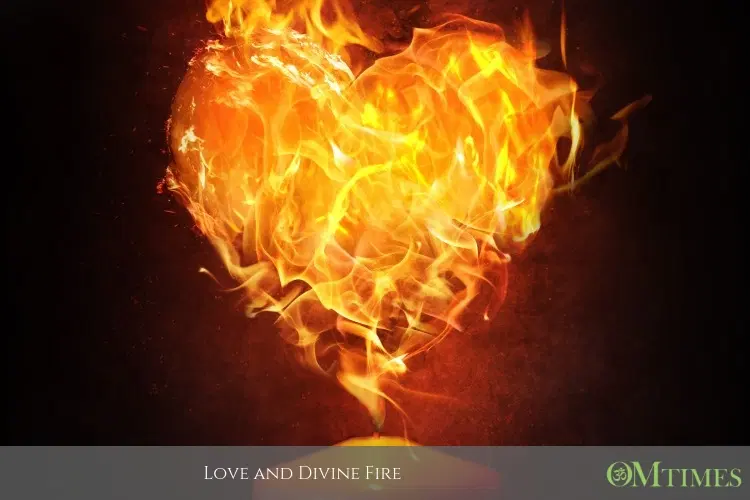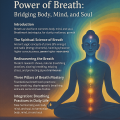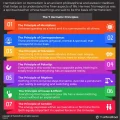
Byline: Inspired by the teachings of Paramahansa Yogananda | UltimateMasters.org
“True love is divine love. It gives without expecting, it uplifts without controlling, and it liberates without attachment.”
– Paramahansa Yogananda
In today’s world, the word “love” has been stretched, abused, and crucified by misunderstanding. What most people call love is often a shadow of its real essence — conditional, possessive, or selfish. But the love we seek deep within our souls is not found in fleeting feelings or romantic dramas. It is divine love — pure, unconditional, and everlasting.
To understand love, we must go beyond words and theories. As you cannot describe the flavor of an orange without tasting it, so too must divine love be experienced to be known. The spark of divine love lives in every human heart, but few know how to cultivate it. That’s why we must unlearn the ways of the world and return to the soul’s original truth — that love is not just a feeling, it is the native language of the soul.
The Source of All Love: God is Bliss
God is not a distant ruler; God is Satchidananda — ever-existing, ever-conscious, ever-new bliss. From that bliss was born all divine qualities — love, compassion, courage, humility. But above all, love is the thread that binds creation together, the harmonizing force that reunites us with our divine origin.
Love isn’t just an emotion; it is the cosmic magnet that draws all beings back to Spirit. Every time we feel love — for a parent, child, friend, or partner — we are catching a glimpse of God’s own longing for us. Yet love without joy is incomplete. It is joy that gives love its wings. And joy is the very perfume of God’s presence.

Human Love as a Reflection of Divine Lov
In this world, love appears in many forms:
- Motherly love is the closest to Divine love — unconditional, forgiving, and unfailing.
- Fatherly love is rooted in protection and reason — a wise expression of duty.
- Conjugal love, when pure and selfless, reflects deep unity. But when tainted by lust, it loses its divine radiance.
- Friendly love is one of the grandest, as it arises from choice and not obligation — a glimpse of divine friendship.
- The Guru-Disciple relationship is the purest earthly mirror of Divine love — an eternal bond built on spiritual trust and soul surrender.
Each of these expressions is a channel of God’s love, refracted through the prism of human consciousness. But unless purified, human love often becomes entangled with expectation, ego, or desire.
Sex Is Not Love — Self-Control Is the Gateway
Modern society has confused love with sexual attraction, reducing soul connections to physical cravings. Yet true love transcends lust. It sees the Divine in the other. It sacrifices instead of demands. Sex may spark human connection, but only spiritual love sustains the soul.
The abuse of sex is like driving a car without oil — it exhausts the system and depletes inner peace. But self-control and mind purification elevate relationships to sacredness. When man sees woman as the Divine Mother, and woman sees man as the Divine Father, lust turns to reverence, and possession to liberation.
Love as Divine Romance: Soul and Spirit
The greatest love isn’t found in a partner, a friend, or a family member. The purest, most complete love is the eternal romance between soul and Spirit. It is found not in pursuit, but in meditation, where the devotee melts into God’s bliss. Millions of silent thrills pass through the heart. You realize: this is what you’ve always longed for.
When we awaken this divine love through inner silence, we stop seeking validation, and start radiating love. The need for control, approval, or even human companionship fades. You begin to see God in all — the flower, the breeze, your friend, your foe. You love them not for what they do, but because you recognize your shared essence.
Divine Love in Action: The Story of Rādhā and Krishna
One of the most moving expressions of selfless divine love comes from the story of Rādhā and Krishna. While others feared stepping on their Master’s head to relieve his feigned pain, Rādhā didn’t hesitate. Her only concern was Krishna’s comfort, even if it meant spiritual consequences. Her devotion wasn’t for recognition — it was pure, soul-offering love. And when her pride grew, Krishna gently shattered it to bring her closer to the truth: love is not about possession — it is about surrender.
The Final Revelation: Love is God
What remains when all human love has faded? What is left when the children grow up, the partners pass on, and friends move away? Only God remains — the One who created every form, every bond, every longing. Behind all our relationships, we’re seeking His love.
Why spend your life chasing temporary affection when Divine love is available at every breath? Meditate, go deep, call on the Divine Mother or Heavenly Father, and say:
“You made me in your image. My home is with You. I want nothing but You.”
When you cry like that from the soul, God has no choice but to answer. And once you taste that love, you’ll never seek it elsewhere again. You will walk in the world, but not be of it. You will see God in all, and you will become love itself.

Final Blessing
True love is not a need — it is a gift. It cannot be taken. It cannot be demanded. It arises from a heart that is whole. From meditation, devotion, self-control, and silence comes the birth of the Divine Lover within you.
Let your soul say today:
“I want not else but God. I choose divine love. I am a child of the Infinite.”
And in that declaration, your true love story begins.
Frequently Asked Questions about Divine Love
Q1: What is divine love according to this text, and how does it differ from what people commonly understand as love?
Divine love, as described here, is the purest form of love, originating from God (Satchidananda). It is characterized by giving without expectation, uplifting without control, and liberating without attachment. This contrasts with common understandings of love, which are often conditional, possessive, and rooted in selfish needs or fleeting emotions. The text suggests that much of what people call love is merely a “shadow” of its true, divine essence.
Q2: How does the text explain the connection between God and love?
The text posits that God is not just a distant entity but the very essence of bliss (Satchidananda), from which all divine qualities, including love, originate. Love is presented as the fundamental thread that binds creation together and the force that draws all beings back to their divine source. Every experience of human love is seen as a glimpse of God’s own love and longing for humanity.
Q3: What are some examples of how divine love manifests in human relationships, and how can these expressions be distorted?
The text outlines several forms of human love as reflections of divine love, including motherly love (closest to divine love due to its unconditional nature), fatherly love (rooted in protection and reason), conjugal love (reflecting unity when pure, but tainted by lust), friendly love (arising from choice and reflecting divine friendship), and the Guru-Disciple relationship (the purest earthly mirror of divine love). These expressions, however, can become distorted when entangled with expectation, ego, or desire, obscuring their divine radiance.
Q4: How does the text distinguish between love and sex, and what role does self-control play in cultivating true love?
The text clearly differentiates between love and sexual attraction, stating that modern society has often confused the two. True love transcends mere physical cravings and focuses on seeing the Divine in another. While sex might initiate a human connection, it is spiritual love that sustains the soul. Self-control and mind purification are presented as essential for elevating relationships to a sacred level, allowing individuals to move beyond lust towards reverence and liberation.
Q5: What is meant by the “divine romance” described in the text, and how is it experienced?
The “divine romance” refers to the ultimate and purest form of love: the eternal connection between the individual soul and Spirit (God). This love is not found in external relationships but is experienced inwardly through practices like meditation. In this inner silence, the devotee merges with God’s bliss, fulfilling the deepest longings of the soul and realizing the source of true and complete love.
Q6: How does awakening divine love within oneself change one’s perception and interactions with the external world?
When divine love is awakened within through inner silence, the need for external validation and control diminishes. Individuals begin to radiate love rather than seek it. They start to perceive God in all aspects of creation – nature, friends, and even adversaries – loving them not for what they do but for their shared divine essence. This signifies a shift from seeking love to becoming love itself.
Q7: What does the story of Rādhā and Krishna illustrate about the nature of divine love?
The story of Rādhā and Krishna serves as a powerful illustration of selfless divine love. Rādhā’s unwavering devotion and willingness to prioritize Krishna’s well-being above all else, even spiritual consequences, exemplify pure, soul-offering love devoid of seeking recognition. The narrative also highlights that divine love is about surrender, not possession, as demonstrated by Krishna’s gentle shattering of Rādhā’s pride to bring her closer to this truth.
Q8: According to the text, what is the ultimate source of all love, and how can one connect with it?
The text concludes that God is the ultimate source of all love, the One who underlies every form of affection and longing. To connect with this divine love, the text emphasizes practices such as meditation, deep introspection, and sincere calling upon the Divine. By turning inward and expressing a profound desire for God, individuals can experience this love directly and realize that it is their true home, leading to a life lived in the world but not bound by its limitations, seeing God in everything and embodying love itself.convert_to_textConvert to source



















0 responses on "Rediscovering True Love: The Divine Flame in Every Heart"